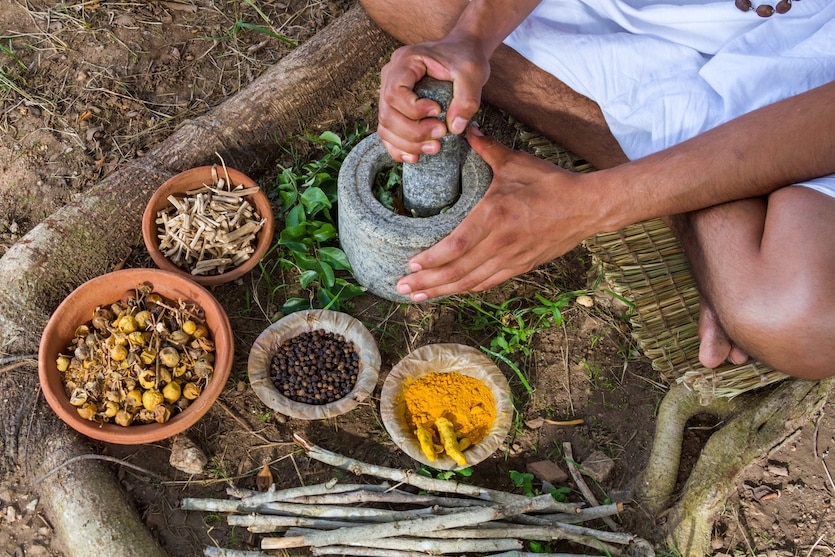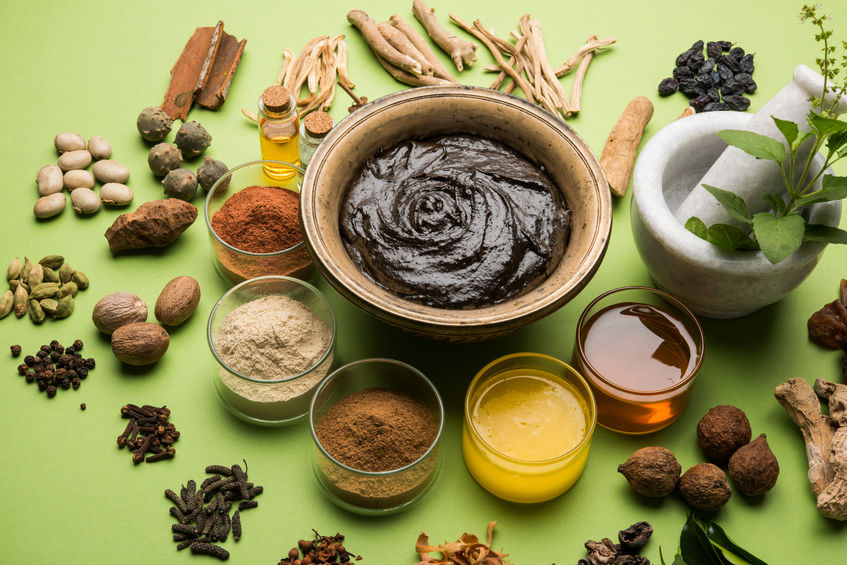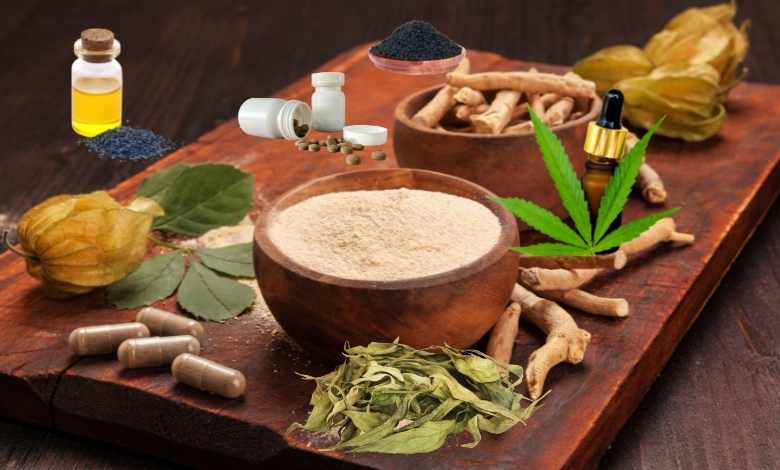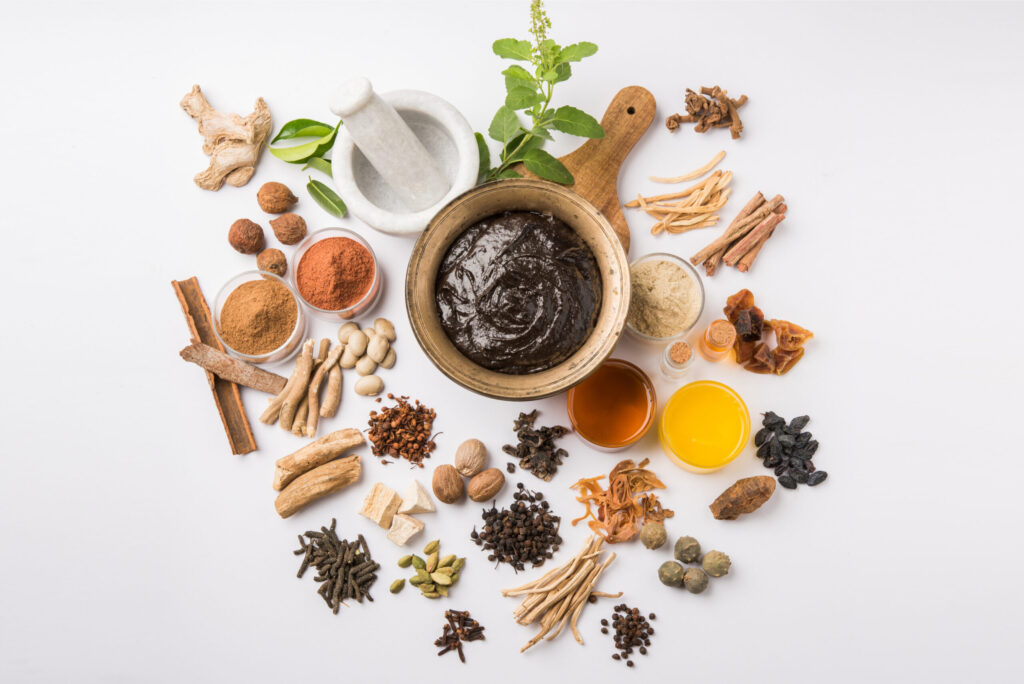1. Introduction to Ayurveda and Wellhealth: Unlocking Wellness
Ayurveda, often hailed as the “science of life,” is an ancient system of holistic healing that originated in India thousands of years ago. Derived from the Sanskrit words “Ayur” meaning life and “Veda” meaning knowledge, Ayurveda offers a comprehensive approach to achieving overall well-being by harmonizing the mind, body, and spirit.
In recent times, there has been a resurgence of interest in Ayurveda as people seek natural and holistic approaches to health and wellness. Amidst this resurgence, Wellhealth emerges as a beacon of modern wellness rooted in ancient Ayurvedic principles.
Unlocking Wellness with Wellhealth:
Wellhealth is more than just a brand; it’s a philosophy that integrates traditional Ayurvedic wisdom with contemporary understanding and practices. The essence of Wellhealth lies in unlocking the potential for wellness within each individual, empowering them to take charge of their health journey.
Understanding the Core Tenets of Ayurveda:
At the heart of Ayurveda lies the concept of “doshas” – three fundamental energies that govern our physical and mental constitution: Vata, Pitta, and Kapha. Discovering your unique dosha constitution is the first step towards understanding your body’s needs and achieving balance.
Mindful Eating for Digestive Health:
Ayurveda emphasizes the importance of mindful eating as a cornerstone of good health. By paying attention to the qualities of food and how they affect our dosha balance, we can make informed dietary choices that support optimal digestion and overall well-being.
Balancing Daily Routines:
Ayurveda teaches us the significance of aligning our daily routines with the natural rhythms of the day, known as “dinacharya.” From waking up with the sunrise to winding down before bedtime, establishing a balanced daily routine promotes vitality and resilience.
In essence, the journey towards well-being with Wellhealth begins by delving into the timeless wisdom of Ayurveda, understanding our unique constitution, and embracing holistic practices that nourish the body, mind, and spirit. Through this journey of self-discovery and self-care, we unlock the path to lasting wellness and vitality.

2. Understanding Ayurvedic Principles:
Ayurveda, often referred to as the “science of life,” is a holistic system of medicine that originated in ancient India over 5,000 years ago. At its core, Ayurveda seeks to promote health and prevent disease by harmonizing the mind, body, and spirit. In this section, we will explore some key Ayurvedic principles that form the foundation of well-being.
Discover Your Dosha:
Central to Ayurvedic philosophy is the concept of doshas, which are three fundamental energies that govern various physiological and psychological functions within the body. These doshas are known as Vata, Pitta, and Kapha, and each person has a unique combination of these energies that make up their constitution. Understanding your dominant dosha or dosha combination is essential for tailoring lifestyle choices, diet, and therapeutic practices to maintain balance and prevent illness.
Vata: Associated with qualities of air and ether, Vata governs movement, creativity, and communication. When in balance, Vata individuals are creative, energetic, and adaptable. However, imbalances can manifest as anxiety, insomnia, and digestive issues.
Pitta: Representing the elements of fire and water, Pitta regulates digestion, metabolism, and transformation. Pitta types are known for their sharp intellect, strong digestion, and leadership qualities. Excess Pitta can lead to irritability, inflammation, and digestive disorders.
Kapha: Characterized by earth and water elements, Kapha governs structure, stability, and nourishment. Kapha individuals tend to be calm, grounded, and nurturing. Imbalances may manifest as weight gain, lethargy, and respiratory ailments.
Mindful Eating for Digestive Health:
Ayurveda emphasizes the importance of mindful eating as a key aspect of maintaining digestive health and overall well-being. According to Ayurvedic principles, food is not only a source of nourishment but also a form of medicine. Each food has its own inherent qualities (known as gunas) that can influence the doshas. For example, foods that are light, dry, and cold can aggravate Vata, while warm, cooked foods pacify Vata and nourish the body.
In addition to considering the qualities of food, Ayurveda also emphasizes the importance of eating in a calm and relaxed environment, chewing food thoroughly, and being mindful of portion sizes. By adopting mindful eating practices, individuals can optimize digestion, assimilation of nutrients, and overall health.
Balancing Daily Routines:
Another key principle of Ayurveda is the concept of dinacharya, or daily routine. Aligning our daily activities with the natural rhythms of the day can promote balance and harmony within the body and mind. Ayurvedic daily routines typically include practices such as waking up early, performing self-care rituals (such as oil massage and tongue scraping), engaging in regular exercise, and prioritizing restful sleep.
By incorporating these Ayurvedic principles into our daily lives, we can cultivate greater awareness, balance, and vitality. Understanding our dosha constitution, practicing mindful eating, and embracing daily routines aligned with nature are essential steps on the path to optimal health and well-being according to Ayurveda.

3. Holistic Wellness Practices:
Holistic wellness is the cornerstone of Ayurveda, emphasizing the interconnectedness of the body, mind, and spirit. In this section, we delve into holistic wellness practices rooted in Ayurvedic principles that promote overall well-being and vitality.
Embracing Mind-Body Practices:
Ayurveda recognizes the profound connection between the mind and body and advocates for practices that nurture both aspects of our being. Mind-body practices such as yoga, meditation, and pranayama (breathwork) are integral to Ayurvedic wellness.
Yoga, with its diverse range of postures (asanas) and breathing techniques, helps to cultivate physical strength, flexibility, and balance while calming the mind and reducing stress. Meditation, on the other hand, provides an opportunity to quiet the mind, cultivate mindfulness, and tap into a deeper sense of inner peace and clarity. Pranayama practices focus on harnessing the breath to regulate energy flow and promote overall vitality.
By integrating these mind-body practices into our daily routine, we can cultivate a sense of wholeness and harmony, fostering optimal health and well-being.
Cultivating a Peaceful Mindset:
Ayurveda emphasizes the importance of cultivating a peaceful mindset as a key component of holistic wellness. A calm and tranquil mind not only promotes emotional well-being but also supports physical health by reducing stress and balancing the doshas.
Various Ayurvedic practices, such as mindfulness meditation, journaling, and spending time in nature, can help cultivate inner peace and resilience. Additionally, incorporating stress-reducing herbs and adaptogens into our diet and lifestyle can further support a calm and balanced nervous system.
By prioritizing practices that promote mental and emotional balance, we can navigate life’s challenges with greater ease and grace, fostering a deep sense of well-being and contentment.
In essence, holistic wellness practices rooted in Ayurvedic principles offer a comprehensive approach to health and vitality, addressing the interconnectedness of the body, mind, and spirit. By embracing mind-body practices, cultivating a peaceful mindset, and nurturing our overall well-being, we can unlock the path to lasting health and happiness according to Ayurveda.

4. Ayurvedic Diet Tips:
Diet plays a crucial role in Ayurveda, serving as a primary means of maintaining health and preventing disease. In this section, we explore Ayurvedic diet tips that are tailored to individual constitutions and promote optimal digestion, metabolism, and overall well-being.
Ayurvedic Diet Tips For Beginners:
Ayurveda categorizes foods based on their tastes (rasa), qualities (guna), and effects on the doshas. Understanding these principles can help individuals make informed dietary choices that support their unique constitution and promote balance.
Eat According to Your Dosha:
Ayurveda recommends tailoring your diet to your dominant dosha or dosha combination. For example, Vata types may benefit from warm, grounding foods like cooked grains, root vegetables, and nourishing soups. Pitta types thrive on cooling, hydrating foods like leafy greens, sweet fruits, and cooling herbs. Kapha types benefit from light, stimulating foods like legumes, bitter greens, and pungent spices.
Emphasize Whole, Seasonal Foods:
Ayurveda emphasizes the importance of eating fresh, whole foods that are in season and locally sourced. Seasonal foods are naturally aligned with the body’s needs and provide the necessary nutrients to support health and vitality.
Maintain Proper Food Combining:
Ayurveda teaches the importance of proper food combining to support optimal digestion and prevent the formation of toxins (ama) in the body. Avoiding incompatible food combinations, such as mixing dairy with fruit or consuming heavy proteins with carbohydrates, can help prevent digestive discomfort and promote efficient nutrient absorption.
Include Six Tastes in Each Meal:
Ayurveda recognizes six tastes – sweet, sour, salty, pungent, bitter, and astringent – each of which plays a unique role in balancing the doshas and supporting overall health. Incorporating all six tastes into each meal ensures that all aspects of the palate are satisfied and helps prevent cravings and overeating.
Eat Mindfully:
Ayurveda emphasizes the importance of eating mindfully, free from distractions, and in a calm and relaxed environment. Chew your food thoroughly, savoring each bite, and pay attention to your body’s hunger and satiety signals.
By incorporating these Ayurvedic diet tips into your daily routine, you can support optimal digestion, metabolism, and overall well-being. Remember that Ayurveda is not a one-size-fits-all approach, so experiment with different foods and practices to find what works best for your unique constitution and lifestyle.

5. Ayurvedic Remedies and Practices:
Ayurveda offers a wealth of remedies and practices aimed at restoring balance to the body and mind, preventing illness, and promoting overall well-being. In this section, we explore various Ayurvedic remedies and practices that address common health concerns and support holistic wellness.
Ayurvedic Supplements, Oils, and Syrups:
Ayurveda utilizes a wide range of herbal supplements, oils, and syrups to support health and treat various ailments. These natural remedies are derived from herbs, spices, and other botanicals, each with its unique therapeutic properties.
Herbal Supplements:
Ayurvedic herbal supplements, known as “rasayanas” or rejuvenatives, are formulated to nourish and strengthen the body, enhance vitality, and promote longevity. Common Ayurvedic supplements include Ashwagandha for stress relief, Triphala for digestive health, and Brahmi for cognitive function.
Ayurvedic Oils:
Ayurvedic oils, such as sesame oil, coconut oil, and castor oil, are used both internally and externally for their therapeutic benefits. Internal oiling, known as “snehana,” involves consuming small amounts of medicated oils to lubricate the digestive tract and promote detoxification. External oiling, or “abhyanga,” involves massaging the body with warm oil to nourish the skin, calm the nervous system, and promote relaxation.
Ayurvedic Syrups:
Ayurvedic syrups, or “avalehas,” are herbal formulations prepared with honey or jaggery as a base. These syrups are used to treat various respiratory, digestive, and immune-related conditions. For example, Chyawanprash is a popular Ayurvedic syrup known for its immune-boosting properties, while Drakshasava is used to improve digestion and alleviate fatigue.
Ayurvedic Treatment for Common Cold and Sinusitis:
Ayurveda offers effective remedies for treating common respiratory ailments such as colds and sinusitis. These remedies aim to alleviate symptoms, boost immunity, and promote respiratory health.
Nasya Therapy:
Nasya involves administering herbal oils or medicated powders into the nostrils to lubricate the nasal passages, clear congestion, and relieve sinus pressure. Nasya therapy is particularly effective for sinusitis, allergies, and respiratory congestion.
Steam Inhalation:
Inhaling steam infused with therapeutic herbs such as eucalyptus, mint, and camphor can help clear nasal congestion, soothe irritated mucous membranes, and relieve respiratory symptoms.
Herbal Formulations:
Ayurvedic formulations containing herbs like Tulsi (holy basil), Ginger, and Turmeric are commonly used to boost immunity, reduce inflammation, and support respiratory health. These formulations may be consumed internally or used as herbal teas, decoctions, or throat sprays.
By incorporating Ayurvedic supplements, oils, and syrups into your wellness routine and utilizing Ayurvedic remedies for common ailments, you can support your body’s natural healing processes and promote overall health and well-being. However, it’s essential to consult with a qualified Ayurvedic practitioner or healthcare provider before starting any new herbal regimen, especially if you have pre-existing health conditions or are taking medications.

6. Daily Rituals for Well-being:
In Ayurveda, daily rituals, known as “dinacharya,” play a crucial role in promoting overall well-being by aligning our routines with the natural rhythms of the day. These rituals encompass a range of practices aimed at nurturing the body, mind, and spirit. In this section, we explore various daily rituals that can support your journey towards optimal health and vitality.
8 DIY Ayurveda Rituals (Dinacharya) | Self Care Routine:
Wake Up Early:
Ayurveda recommends rising with the sun, ideally around dawn, to align with the body’s natural circadian rhythms and maximize energy levels throughout the day.
Tongue Scraping (Jihwa Prakshalana):
Upon waking, gently scrape your tongue using a tongue scraper to remove toxins (ama) that have accumulated overnight and promote oral hygiene.
Oil Pulling (Gandusha/Kavala):
Swish a tablespoon of warm sesame or coconut oil in your mouth for 5-10 minutes, then spit it out to remove bacteria, toxins, and impurities from the mouth and promote oral health.
Self-Massage (Abhyanga):
Perform a self-massage using warm herbal oils, such as sesame or coconut oil, to nourish the skin, soothe the nervous system, and promote relaxation. Focus on massaging the entire body, paying special attention to joints and areas of tension.
Yoga and Pranayama:
Engage in a gentle yoga practice and pranayama (breathwork) to stretch the body, calm the mind, and promote circulation and vitality. Incorporate poses and breathing techniques that are suitable for your body type and current state of health.
Meditation and Mindfulness:
Dedicate time for meditation and mindfulness practices to cultivate inner peace, clarity, and emotional resilience. Find a quiet space, sit comfortably, and focus your attention on your breath, sensations, or a mantra.
Healthy Breakfast:
Enjoy a nourishing breakfast consisting of whole, seasonal foods that align with your dosha constitution. Choose warm, cooked foods like porridge, stewed fruits, or herbal teas to support digestion and provide sustained energy throughout the morning.
Bedtime Routine:
Establish a calming bedtime routine to promote restful sleep and prepare the body for restorative rest. Avoid stimulating activities and electronics before bed, dim the lights, and engage in relaxing activities such as reading, gentle stretching, or practicing gratitude.
By incorporating these Ayurvedic daily rituals into your routine, you can cultivate greater balance, vitality, and well-being in your life. Remember to personalize your self-care routine based on your individual needs, preferences, and lifestyle, and approach each practice with mindfulness and intentionality.

7. Cleansing Mind, Body & Spirit:
Cleansing is an essential aspect of Ayurveda, focusing on removing toxins (ama) from the body, clearing the mind, and nurturing the spirit. In this section, we explore various Ayurvedic practices aimed at cleansing the mind, body, and spirit to promote optimal health and well-being.
Benefits of Oil Pulling:
Oil pulling, known as “Gandusha” or “Kavala,” is an ancient Ayurvedic practice that involves swishing oil around in the mouth to draw out toxins and impurities. This practice is believed to not only improve oral health but also promote overall detoxification and vitality.
Oral Health:
Oil pulling helps to remove harmful bacteria, plaque, and toxins from the mouth, promoting oral hygiene, preventing cavities, and reducing bad breath.
Detoxification:
By swishing oil in the mouth, toxins are pulled from the oral cavity and expelled, supporting detoxification pathways and promoting overall cleansing of the body.
Improved Digestion:
Ayurveda teaches that the health of the oral cavity is closely linked to digestive health. By maintaining oral hygiene through oil pulling, digestion is supported, and the risk of digestive disorders is reduced.
Clearer Skin:
Some proponents of oil pulling suggest that the practice can help improve skin health by removing toxins from the body and promoting detoxification. Clearing toxins from the body may lead to a clearer complexion and healthier skin.
Ayurveda and Cancer:
Ayurveda offers a holistic approach to cancer prevention and support, focusing on balancing the body’s natural energies, supporting immune function, and promoting overall well-being.
Diet and Nutrition:
Ayurveda emphasizes the importance of a balanced diet rich in whole, seasonal foods to support immune function and overall health. Specific dietary recommendations may vary depending on the individual’s constitution and the stage of cancer.
Herbal Therapies:
Ayurvedic herbs and formulations may be used to support immune function, reduce inflammation, and promote detoxification in individuals with cancer. Herbs such as Ashwagandha, Turmeric, and Tulsi are commonly used for their immune-boosting and anti-inflammatory properties.
Lifestyle Practices:
Stress reduction techniques, such as meditation, yoga, and pranayama, can help support emotional well-being and reduce the impact of stress on the body’s natural healing processes.
Detoxification:
Ayurvedic cleansing therapies, such as Panchakarma, may be recommended to support detoxification and elimination of toxins from the body. These therapies aim to restore balance to the body’s natural energies and promote overall health and vitality.
Incorporating cleansing practices like oil pulling into your daily routine can support oral health and overall detoxification. Additionally, embracing Ayurvedic principles and practices can provide holistic support for cancer prevention and management, promoting overall health and well-being. However, it’s important to consult with a qualified healthcare practitioner before starting any new cleansing or treatment regimen, especially if you have pre-existing health conditions or are undergoing medical treatment.

8. Ayurvedic Health Tips for Specific Conditions:
Ayurveda offers tailored recommendations for addressing specific health concerns and conditions, taking into account individual constitution, imbalances, and lifestyle factors. In this section, we explore Ayurvedic health tips for common conditions, empowering individuals to take proactive steps towards holistic well-being.
Ayurvedic Tips for Relieving Anxiety:
Anxiety is a common concern affecting mental and emotional well-being. Ayurveda offers holistic approaches to managing anxiety by addressing underlying imbalances and promoting relaxation and tranquility.
Stress Reduction Techniques:
Incorporate stress reduction techniques such as meditation, mindfulness, and deep breathing exercises into your daily routine to promote relaxation and calm the nervous system.
Herbal Remedies:
Ayurvedic herbs such as Ashwagandha, Brahmi, and Jatamansi are renowned for their anxiolytic properties and can help alleviate symptoms of anxiety when taken regularly under the guidance of a qualified practitioner.
Nourishing Diet:
Focus on a nourishing diet that includes whole foods, warm, cooked meals, and calming herbal teas. Avoid stimulants such as caffeine and processed foods, which can exacerbate feelings of anxiety.
Regular Routine:
Establish a regular daily routine that includes adequate rest, exercise, and self-care practices to promote stability and reduce stress levels.
Ayurvedic Remedies for Healthier Living:
Ayurveda provides a holistic framework for maintaining overall health and preventing disease through lifestyle practices, dietary choices, and herbal remedies.
Daily Self-Care:
Incorporate daily self-care rituals such as oil massage (abhyanga), tongue scraping, and nasal cleansing (neti) to support detoxification, improve immunity, and promote overall well-being.
Balanced Diet:
Follow a balanced diet consisting of whole, seasonal foods that are appropriate for your dosha constitution. Emphasize fresh fruits, vegetables, whole grains, and nourishing soups to provide essential nutrients and support digestive health.
Hydration:
Stay hydrated by drinking plenty of warm water throughout the day, as proper hydration is essential for maintaining optimal health and supporting bodily functions.
Mindful Movement:
Engage in regular physical activity such as yoga, walking, or dancing to promote circulation, flexibility, and mental well-being. Choose activities that resonate with your body and bring you joy.
By implementing these Ayurvedic health tips for specific conditions and embracing a holistic approach to well-being, individuals can take proactive steps towards managing their health and achieving balance in mind, body, and spirit. It’s important to consult with a qualified Ayurvedic practitioner to develop a personalized health plan that addresses your unique needs and concerns.

9. Ayurvedic Health Tips in Regional Languages:
Ayurveda’s wisdom extends beyond geographical boundaries, reaching people around the world in various languages. In this section, we explore Ayurvedic health tips presented in regional languages, making this ancient knowledge accessible to diverse communities.
Wellhealth Ayurvedic Health Tips in Hindi:
दिनचर्या (Daily Routine):
अपनी दिनचर्या में समय समय पर आहार, व्यायाम, ध्यान और विश्राम को शामिल करें। ध्यान और योग से अपने मन को शांति और स्थिरता की अनुभूति दें।
आहार के लिए संतुलित डाइट:
आयुर्वेद अनुसार, वात, पित्त और कफ के अनुसार आहार का चयन करें। हल्का और पाचनीय आहार का सेवन करें।
प्राकृतिक औषधियाँ:
आयुर्वेदिक औषधियाँ जैसे अश्वगंधा, त्रिफला, ब्राह्मी आदि का उपयोग करके स्वास्थ्य को समर्थ बनाएं।
व्यायाम और प्राणायाम:
योग और प्राणायाम के अभ्यास को अपनाएं, जो शारीरिक और मानसिक स्वास्थ्य को समर्थ करते हैं और स्थिरता प्रदान करते हैं।
उपचारिक उपाय:
व्याकुलता, असमंजस्य, विशेष रोगों जैसे शीघ्रपतन, पीलिया आदि के उपचार के लिए आयुर्वेदिक उपाय का अनुसरण करें।
Top 10 WellHealth Ayurvedic Health Tips in Hindi (10 विश्वासनीय स्वास्थ्य टिप्स):
दिनचर्या (Dinacharya):
समय समय पर उठें, योग और प्राणायाम करें, समय पर खाएं और समय पर सोएं।
आहार का महत्व:
स्वस्थ आहार का सेवन करें, संतुलित खाना खाएं, ताजा और स्थानीय खाद्य पदार्थों का उपयोग करें।
स्वास्थ्य संरक्षण के लिए प्राकृतिक उपाय:
नियमित रूप से ध्यान और योग करें, साफ पानी पिएं, नियमित रूप से व्यायाम करें।
आयुर्वेदिक ज्ञान का उपयोग:
अपने आपको आयुर्वेदिक उपचारों और सलाह के साथ संपर्क में रखें।
संतुलित जीवनशैली:
अपने जीवन में संतुलितता को स्थापित करें, समय के साथ साथ विश्राम और आनंद का संरक्षण करें।
These Ayurvedic health tips in Hindi aim to make ancient wisdom accessible to Hindi-speaking communities, empowering individuals to prioritize their health and well-being in their native language. By incorporating these tips into their daily lives, individuals can cultivate greater health, vitality, and happiness, aligning with the holistic principles of Ayurveda.
10. Conclusion:
In conclusion, Ayurveda offers a holistic approach to health and well-being that encompasses the body, mind, and spirit. Through its timeless wisdom and practical teachings, Ayurveda empowers individuals to take charge of their health and live in harmony with the natural rhythms of life.
Throughout this article, we have explored various aspects of Ayurveda, including its principles, practices, and remedies for promoting optimal health. From understanding one’s dosha constitution to incorporating daily rituals and embracing mindful living, Ayurveda provides a comprehensive framework for cultivating balance and vitality in our lives.
By adopting Ayurvedic principles and practices, individuals can experience a multitude of benefits, including improved digestion, enhanced immunity, reduced stress, and increased energy levels. Whether it’s through mindful eating, regular exercise, herbal remedies, or stress reduction techniques, Ayurveda offers a wealth of tools to support our journey towards holistic well-being.
It’s essential to approach Ayurveda with an open mind and a willingness to listen to the wisdom of our bodies. Each person is unique, and what works for one individual may not work for another. Therefore, it’s essential to tune into our own needs and intuition as we navigate our path to health and wellness.
In essence, Ayurveda reminds us of the interconnectedness of all aspects of our being and encourages us to live in alignment with our true nature. As we incorporate Ayurvedic principles into our lives, we can experience greater harmony, vitality, and fulfillment, paving the way for a life of health, happiness, and holistic well-being.



Help full
Very helpful ☺️😃
Pingback: Wellhealth how to build muscle Tag: Complete Guide
Pingback: Unlocking the Power of Wellhealthorganic Stress Management